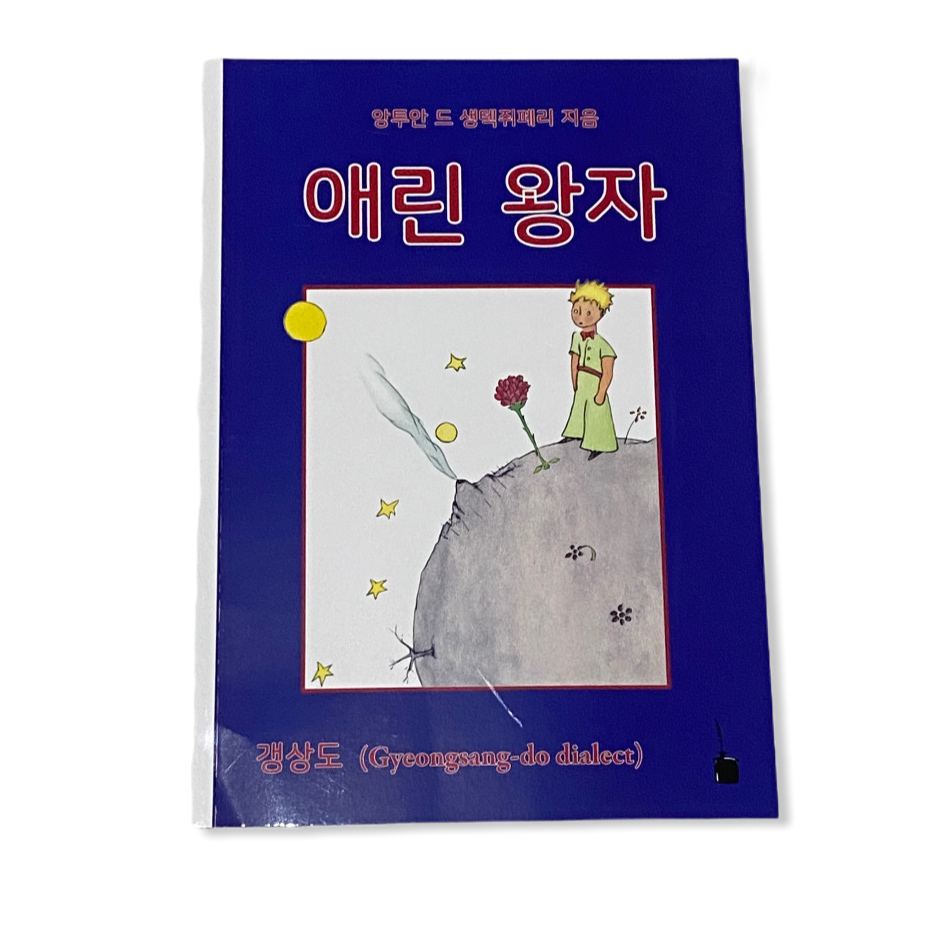
애린 왕자 (Aerin Wangja) in Gyeongsang-do.
The Gyeongsang dialect, also known as Yeongnam dialect, is a group of Korean dialects spoken primarily in the Gyeongsang (Yeongnam) region of South Korea. This region encompasses the provinces of North Gyeongsang (Gyeongsangbuk-do) and South Gyeongsang (Gyeongsangnam-do), including major cities such as Daegu, Busan, and Ulsan. The Gyeongsang dialect is recognised for its distinct characteristics and is one of the major regional dialects in Korea, alongside others like the Jeolla and Chungcheong dialects.
The Gyeongsang dialect is known for its strong and assertive intonation patterns, which are often perceived as more forceful or direct compared to Standard Korean. This dialect features notable differences in vowel and consonant sounds, contributing to its distinct auditory profile.
While sharing the core grammatical structure of Korean, the Gyeongsang dialect has its own variations in verb endings, sentence endings, and the usage of particles. These grammatical differences can convey nuances in politeness, mood, and emphasis that are characteristic of the dialect.
The Gyeongsang dialect is often associated with strong leadership, straightforwardness, and a dynamic spirit. Cultural stereotypes, while oversimplified, reflect the historical and social dynamics of the Gyeongsang region, known for its significant contributions to Korean history, politics, and economy.
Despite the dominance of Standard Korean, especially in formal contexts, the Gyeongsang dialect continues to be widely spoken in daily life within the Gyeongsang region. It is also represented in media and entertainment, where it is often used to convey certain character traits or regional identities. The dialect’s distinctiveness is valued, and there is a renewed interest in recognising and preserving the linguistic diversity of Korea.


